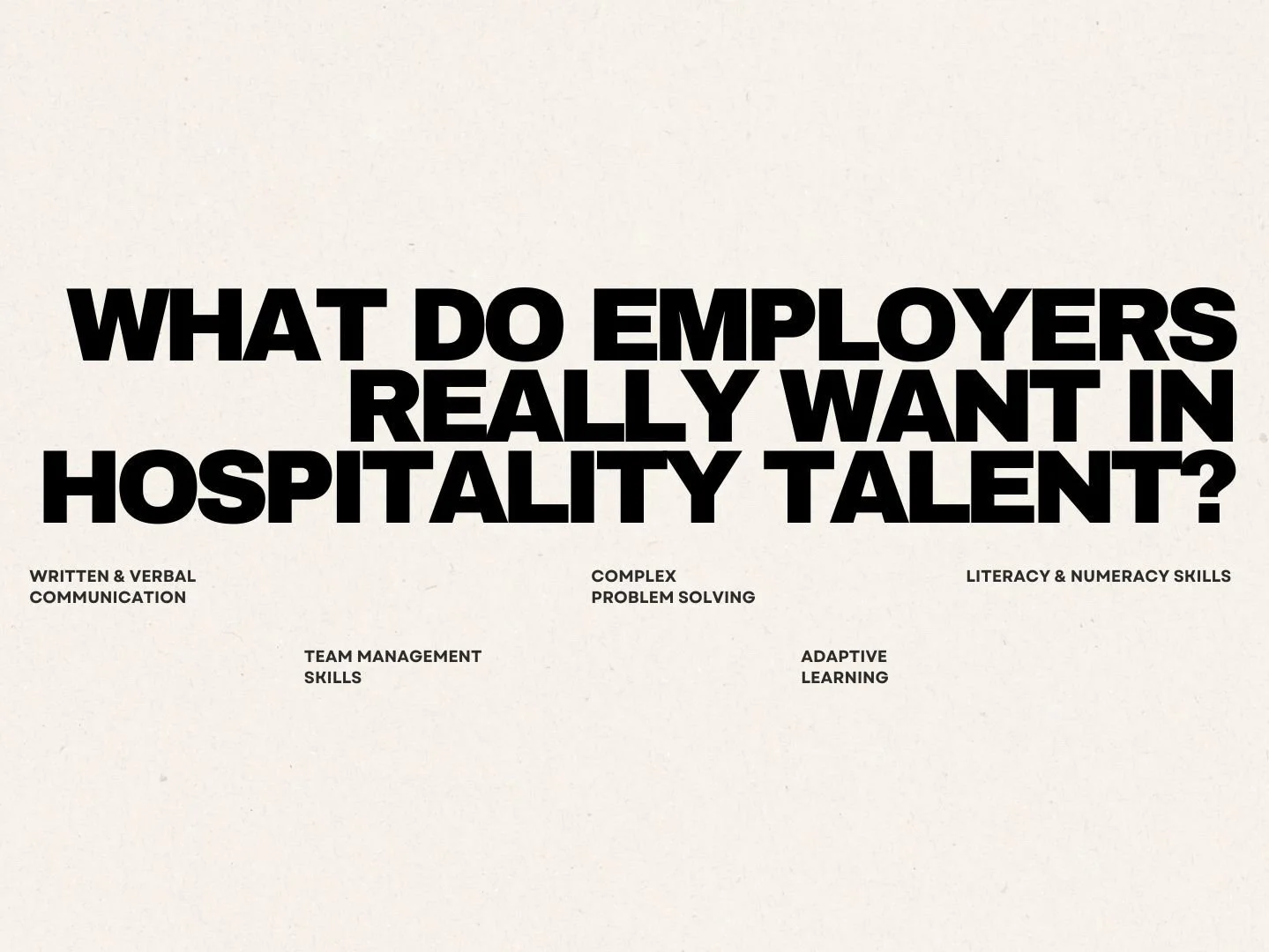Stack Your Skills: Grow, Adapt, and Lead with the T-Shape Method
Success belongs to those who can adapt, bridge disciplines, and bring diverse expertise to the table. This is where skill stacking comes in—an intentional approach to career growth that sets professionals apart.
Understanding the T-Shape Concept
The T-Shape is a widely recognized framework for skill development. It consists of two dimensions:
Deep Expertise (The Vertical Bar) – This represents your core skill, the area where you have significant depth. In hospitality, this could be revenue management, culinary arts, front office operations, or any other specialized field.
Broad Knowledge (The Horizontal Bar) – This encompasses complementary skills and general knowledge across various domains. A revenue manager who understands guest experience design or a chef with strong financial acumen adds more value than one confined to a silo.
IDEO Chief Executive Tim Brown popularized the term “T-shaped person,” which is commonly ingrained into lessons at bootcamps and by industry professionals. In an interview with Chief Executive Magazine, he explained:
The vertical stroke of the “T” is a depth of skill that allows them to contribute to the creative process. That can be from any number of different fields: an industrial designer, an architect, a social scientist, a business specialist, or a mechanical engineer.
The horizontal stroke of the “T” is the disposition for collaboration across disciplines. It is composed of two things. First, empathy. It’s important because it allows people to imagine the problem from another perspective – to stand in somebody else’s shoes. Second, they tend to get very enthusiastic about other people’s disciplines, to the point that they may actually start to practice them. T-shaped people have both depth and breadth in their skills.
An alternative name for a T-shaped person is a “generalizing specialist.”
Why the T-Shape Matters in Hospitality
The best hospitality professionals aren’t just great at their primary roles; they understand the bigger picture and can collaborate across departments.
Career Growth & Mobility: Leaders in the industry often transition across functions—an F&B Director might move into operations, or a front office manager might pivot into sales. The broader your knowledge base, the more career doors open for you.
Adaptability in a Changing Market: With AI, automation, and evolving guest expectations, jobs in hospitality are shifting. Being skilled in multiple areas makes you more resilient to industry changes.
Problem-Solving & Innovation: A housekeeper who understands service recovery principles or a concierge who can leverage data insights contributes more effectively to the guest experience.
Happiness at Work: Work satisfaction often comes from variety, learning, and meaningful contributions. When you broaden your skill set, you open up new challenges, engage in cross-functional collaboration, and keep your work dynamic and engaging. Stagnation leads to frustration, while growth fuels motivation.
How to Think About Your Own Skill Stack
To develop a fulfilling and rewarding career, ask yourself:
What is my deep expertise? Am I continuously honing it?
What complementary skills can amplify my impact?
Where do I want my career to go, and what skills will help me get there?
For example:
A sales manager who learns digital marketing can generate leads beyond traditional networking.
A restaurant manager who develops financial literacy can make stronger strategic decisions.
A hotel GM with tech proficiency can lead digital transformation initiatives.
Take Action: Build Your T-Shape with These Steps
Developing a T-shaped skill set requires intentional effort. Here’s how you can start today:
1. Deepen Your Core Expertise
Identify the one skill you need to master to be among the best in your role.
Take a specialized course (online, workshops, certifications) in that field.
Seek a mentor—someone who excels in this area and can guide you.
Dedicate one hour per week to improving this skill through reading, practice, or structured learning.
2. Expand Your Horizontal Skills
Pick one or two complementary skills to broaden your expertise. Examples:
If you're in front office, learn revenue management.
If you're in F&B, learn cost control and marketing.
If you're a GM, develop digital transformation skills.
Read one book or article per month about this new skill.
Take a free online course (Coursera, Udemy, LinkedIn Learning, etc.).
Shadow someone in another department to see how they work.
3. Develop Cross-Functional Awareness
Volunteer for interdepartmental projects—learn by doing.
Set up a monthly learning session with peers in different roles.
Attend industry events to gain insights from professionals outside your function.
4. Build Empathy and Collaboration Skills
Practice active listening—engage with colleagues to understand their challenges.
Spend time in guest-facing roles (even if you're in a back-office job) to see the direct impact of service.
Offer to train or mentor someone in your expertise while learning from them in return.
5. Keep Your Skill Stack Dynamic
Review your progress every six months and adjust your focus areas.
Keep an eye on emerging trends in hospitality and add relevant skills.
Stay curious—learning never stops, and the best professionals evolve constantly.
The hospitality industry rewards those who are versatile, proactive, and always learning. Your career success and job satisfaction are in your hands—stack your skills wisely.
P.S. Looking for a structured way to expand your skill set? The Trainers Guild at HospeMag offers a pathway to develop and diversify your expertise. Explore it today!







Discover the 4 most common learning styles in hospitality — Visual, Kinesthetic, Reflective, and Social — and why knowing yours can dramatically improve how you train, grow, and thrive at work.